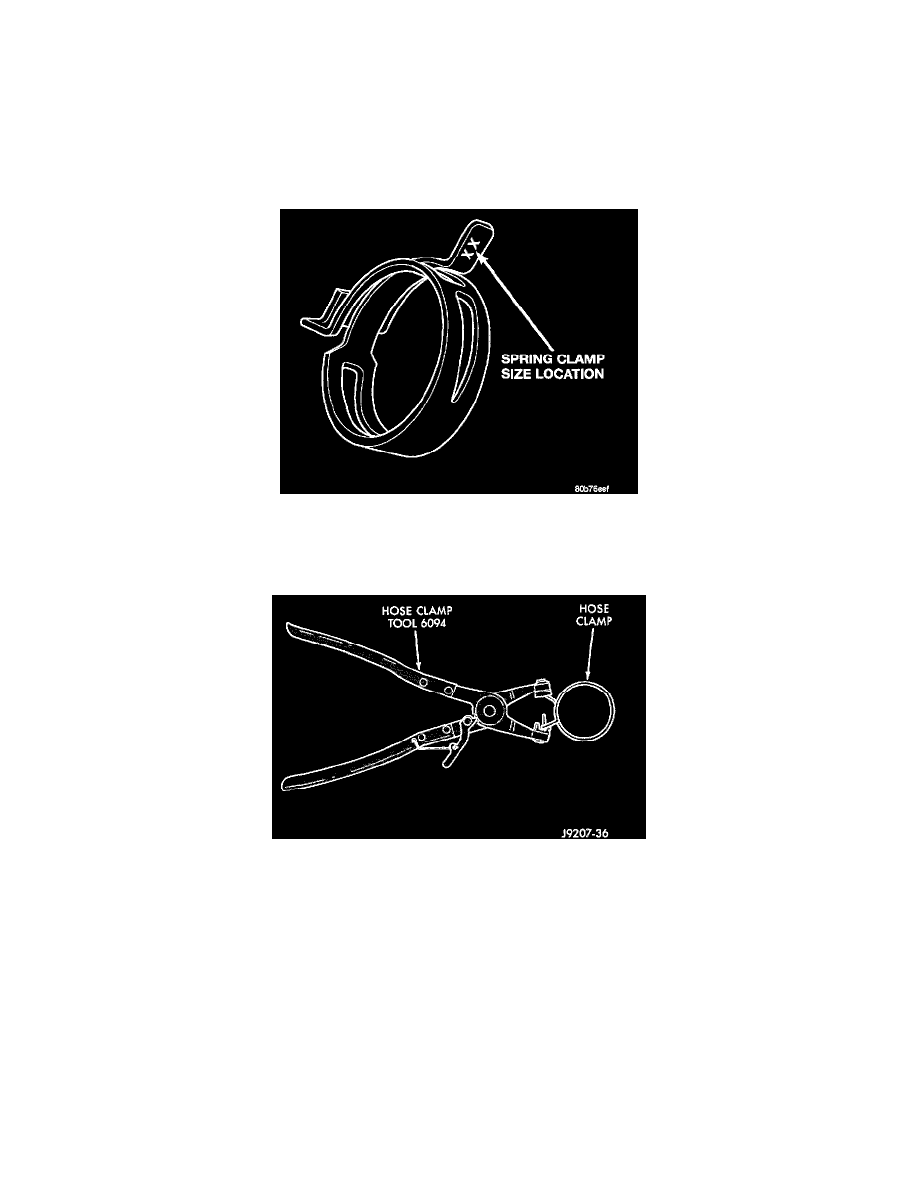Grand Voyager V6-3.8L VIN L (1999)

Radiator Hose: Description and Operation
WARNING: IF VEHICLE HAS BEEN RUN RECENTLY, WAIT 15 MINUTES BEFORE WORKING ON VEHICLE. RELIEVE
PRESSURE BY PLACING A SHOP TOWEL OVER THE CAP AND WITHOUT PUSHING DOWN ROTATE IT
COUNTERCLOCKWISE TO THE FIRST STOP. ALLOW FLUIDS TO ESCAPE THROUGH THE OVERFLOW TUBE AND WHEN
THE SYSTEM STOPS PUSHING OUT COOLANT AND STEAM AND THE PRESSURE DROPS CONTINUE SERVICE.
WARNING: CONSTANT TENSION HOSE CLAMPS ARE USED ON MOST COOLING SYSTEM HOSES. WHEN REMOVING OR
INSTALLING, USE ONLY TOOLS DESIGNED FOR SERVICING THIS TYPE OF CLAMP. ALWAYS WEAR SAFETY GLASSES
WHEN SERVICING CONSTANT TENSION CLAMPS.
Spring Clamp Size Location
CAUTION: A number or letter is stamped into the tongue of constant tension clamps. If replacement is necessary, use only a original equipment
clamp with matching number or letter.
Hose Clamp Tool
The hose clamps are removed by using Special Tool 6094 or equivalent constant tension clamp pliers to compress hose clamp.
A hardened, cracked, swollen or restricted hose should be replaced. Do not damage radiator inlet and outlet when loosening hoses.
Radiator hoses should be routed without any kinks and indexed as designed. The use of molded hoses is recommended.
Make sure hoses and connectors are clean and dry before installation. Do not lubricate hoses when installing.
Spring type hose clamps are used in all applications. If replacement is necessary, replace with the original Mopar(R) equipment spring type clamp.
